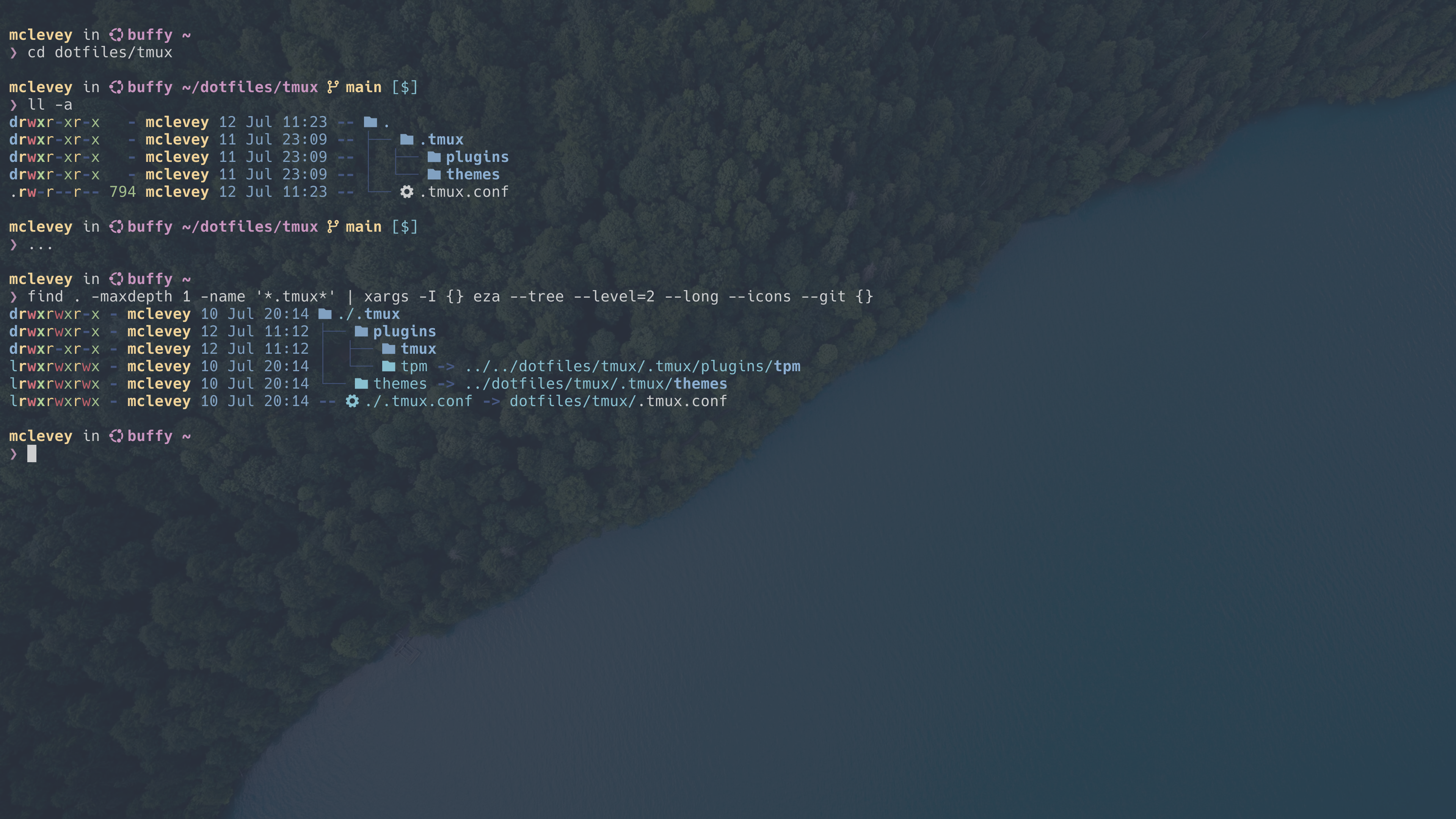John McLevey
University of Waterloo
john.mclevey@uwaterloo.ca
This repository contains my personal dotfiles, managed with git and GNU stow. It's designed for my current setup on macOS (currently 14.5 "Sonoma") and Linux (currently Ubuntu 24.4 LTS, "Noble Numbat").
Using stow to manage dotfiles requires adopting a strict directory structure. Each dotfiles subdirectory is a representation of the home directory (~/) containing the configuration files for a given program or category of programs (e.g., nvim, tmux). The trick is to organize the config files for each program or category of programs inside the subdirectory exactly as they should appear in ~/. Then, when you run stow <directory_name>, stow will symlink the configs to the home directory. In other words, running stow zsh will symlink dotfiles/zsh/.zshrc to ~/.zshrc.
This works for files and subdirectories, even when they are hidden. For example, ~/dotfiles/tmux contains .tmux.conf and .tmux, which contains .tmux/plugins/... and .tmux/themes/.... Running stow tmux symlinks the hidden config file to ~/.tmux.conf and the hidden config subdirectory to ~/.tmux.
This approach allows me to keep all my configs in one centralized directory under version control, which makes them more portable across different systems (macOS and Linux, in my case) as well as easier to manage and update.
To stow all configurations at once, run:
cd dotfiles && stow */.DS_Store files on macOS often cause file conflicts with stow. There are a few ways to handle this issue. One is to simply find and remove them by running:
find ~/dotfiles -name ".DS_Store" -exec rm -f {} \;(or using the cds function defined in .zshrc). However, a better approach is to configure stow to ignore .DS_Store files. You can do this globally in a .stowrc file (~/dotfiles/stow) or locally using .stow-local-ignore files.
I don't keep my ~/.ssh directory in dotfiles/, but my SSH config looks like this:
Host <HOST>
HostName <IP-ADDRESS>
User <USERNAME>
Port <PORT>
Host *
SendEnv LANG LC_*
MACs hmac-sha2-256,hmac-sha2-512
ForwardX11 no
ForwardAgent yes
ServerAliveInterval 15
ConnectTimeout 20
Compression yes
ControlMaster auto
ControlPath ~/.ssh/cm-%r@%h:%p
ControlPersist 600
TCPKeepAlive yes
ServerAliveCountMax 3
LogLevel VERBOSE
This configuration allows me to connect to a host with ssh <HOST>.
Exporting and importing lists of installed packages from a package manager simplies the process of installing important packages on a new machine.
Export a list of installed packages using Homebrew:
brew leaves > ~/dotfiles/package_manager/.leaves.txtTo install these packages on a new machine:
stow package_manager
xargs brew install < ~/.leaves.txtExport a list of manually installed packages using apt-mark:
apt-mark showmanual > ~/dotfiles/package_manager/.packages.txtTo install these packages on a new machine:
stow package_manager
sudo apt-get update
xargs -a ~/.packages.txt sudo apt-get install -y